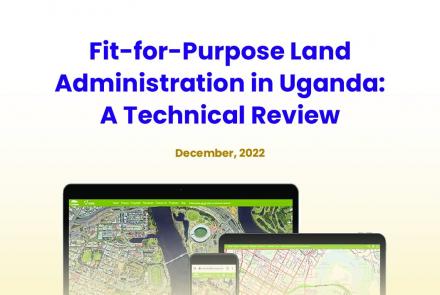Policy and legal reform
Property is not merely the assets them-selves, but consensus between people about how these assets should be held, used, and exchanged. Moreover, property rights to land are not static, but evolve in response to changes in the economic and social environment. Unless property rights to land are defined in a way that will allow those making the investment to reap at least part of the benefits, none of those investment activities will be undertaken voluntarily.
Historically, this has been one of the driving forces underlying the adoption of more secure property rights as well as the development of social structures to facilitate collective action to engage in land related investment. By defining who is entitled to reap the benefit streams that flow from a given resource and thereby establishing correspondence between the effort expended in trying to increase the value of this resource and the reward to be had from such activity, land rights are not only a key element of the social fabric of most societies, but also a critical determinant of investment, and thus of economic growth.
The nature and characteristics of rights and enforcement institutions together define the perceived security of property rights to land, and it is this security that will affect decisions about land use, land related investments, and the willingness to engage in land transfers.
To increase the security of property rights, legal and institutional issues need to be tackled in tandem or evolve jointly, with reference to the broader social and economic environment within which land rights are embedded. On the legal side, the definition of property rights to land and the way in which people can acquire them must be clear and equitable, in line with practice on the ground. Rights must be sufficiently long-term and risks of losing them to discretionary bureaucratic behaviour must be eliminated. On the institutional side, procedures need to be formulated, institutions need to be accessible, and services should be provided effectively and at low cost. All this implies that beyond the formulated general principles, practical implementation of any measures to increase the security of tenure has to start with in-depth analysis of the current situation. If the administrative infrastructure is thin and resources are scarce, this will imply a significant role for the local communities.
Land reforms that increase land tenure security through documentation of land rights and reduction of land disputes especially under customary tenure provides an incentive to the communities to invest in land improvements .These reduce agricultural productivity, a large reduction in land disputes and tenure security results into investment and economic growth.





